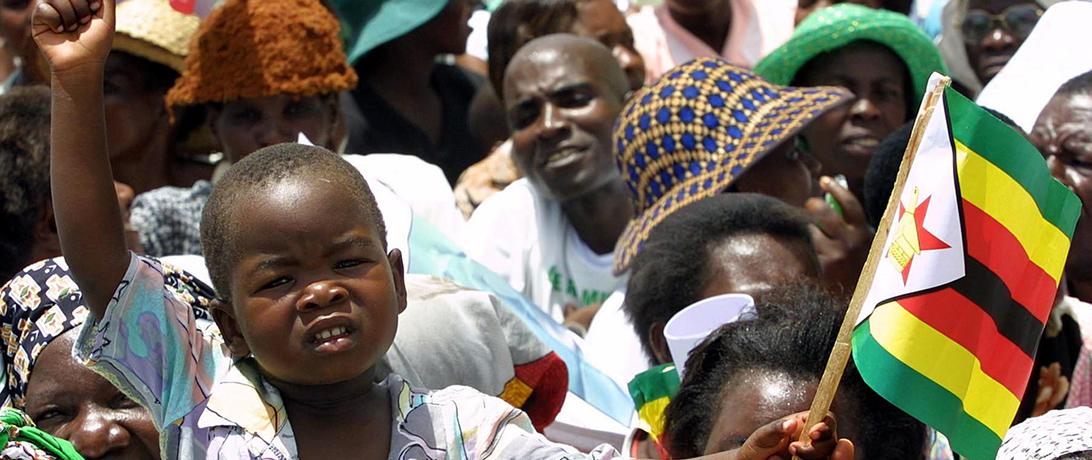
Coups are relatively rare now, but back in the 1960s and 1970s there were years when over a dozen coups occurred, mostly in Sub Saharan Africa.
The year 2017 was shaping up to be the first year without a coup since 2007. Then came Zimbabwe. Early in the morning of November 15, the army’s chief of staff appeared on television and said, “This is not a military takeover.” But with armored personnel carriers rolling through the streets and the President under house arrest, it seemed unlikely to be anything but.
Why would the military deny that a coup is taking place? Because coups are considered illegitimate and a violation of an international norms. When a change in government is labeled a coup, the international community is more likely to pressure the new government to take steps toward democracy. Egypt is instructive in this case. The overthrow of the democratically elected Muslim Brotherhood in 2013 was considered a coup by scholars, but was not labeled as such uniformly. The US government did not call it a coup and did not (at least publicly) pressure the new al-Sisi government to move toward democracy.
Coups are relatively rare now, but back in the 1960s and 70s there were years when over a dozen coups occurred, mostly in Sub Saharan Africa. They were usually violent, often destabilizing, and sometimes they even led to civil war as in the Nigerian coup of 1966. It is no wonder that the United Nations and other organizations have tried to create an anti-coup norm, which would delegitimize them and allow regional actors to try to prevent them.
Are coups always bad?
But are coups always bad? There have been a spate of recent articles promoting some coups as a viable path to democracy. According to political scientists Nikolay Marinov and Hein Goemans,
“…the majority of coups after [1991] … have been followed by competitive elections. … In the post-Cold War era, countries that were most dependent on Western aid were the first to embrace competitive elections after their coups. … While the coup d’e´tat has been (and still is) the single most important factor leading to the downfall of democratic governments, these findings indicate that the new generation of coups has been far less harmful for democracy than their historical predecessors.”
Why is this the case? According to coup scholars Mwita Chacha and Jonathan Powell
“Central to post-coup democratization is the belief that the international community can exert sufficient leverage to coerce coup-born governments to allow a transition to civilian rule.”
And this effect is more pronounced in states more connected to the global economy. Chacha and Powell write,
“A cross-national assessment of over 200 coups from 1950 to 2010 provides strong support for the argument, as trade dependence and contract intensive money are far stronger determinants of post-coup democratization than other factors commonly associated with democratization.”
So will the Zimbabwean coup usher in a democratic transition? It’s too soon to say. The man thought to take the lead, former Vice President, Emmerson Mnangagwa, is a hero of Zimbabwe’s war of independence (along with Mugabe). In fact, until recently he was Mugabe’s right hand and known as “the Crocodile” for his harsh treatment of the opposition. According to Zimbabwean legal scholar Alex T. Magaisa,
“The liberation generation has triumphed by the law of the gun, demonstrating once again the enduring nature of the liberation war narrative in Zimbabwean politics. It served Mugabe once, and now it is serving his subordinates. It suggests that the liberation generation will monopolize power for a long time to come, at least for as long as they live, and will not hesitate to use the gun to defend that monopoly on power.”
But there is hope. Following on Chacha and Powell’s research, the leaders of this coup have talked about renewing Zimbabwe’s economic strength. They will most likely seek renewed trade and direct foreign investment. This will require partners. The new partners, the United States among them, can offer a hand along with pressure for democratic reforms. Elections had been scheduled for next year. We will watch and see.
Article Details
Published
Topic
Program
Content Type
Opinion & Insights